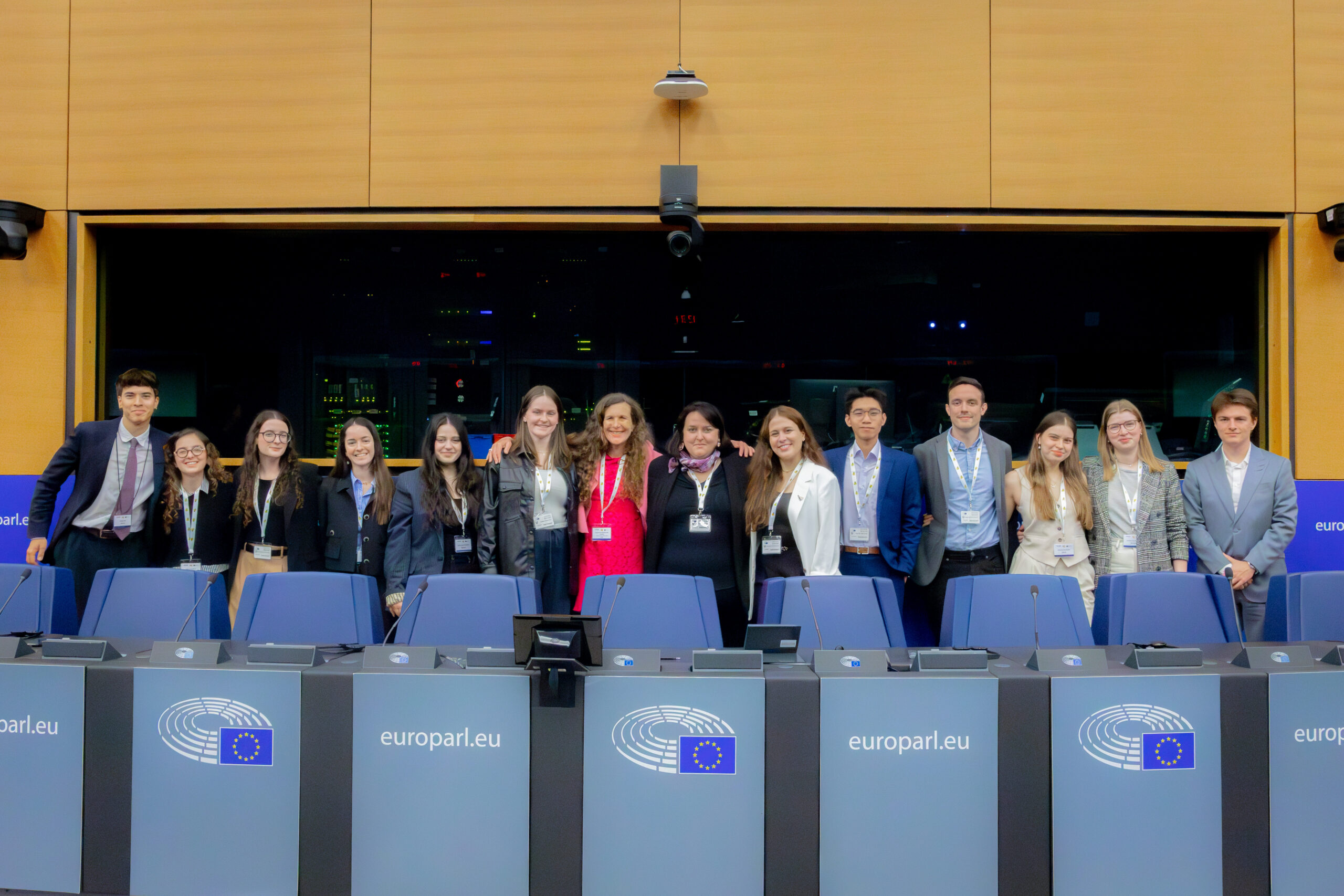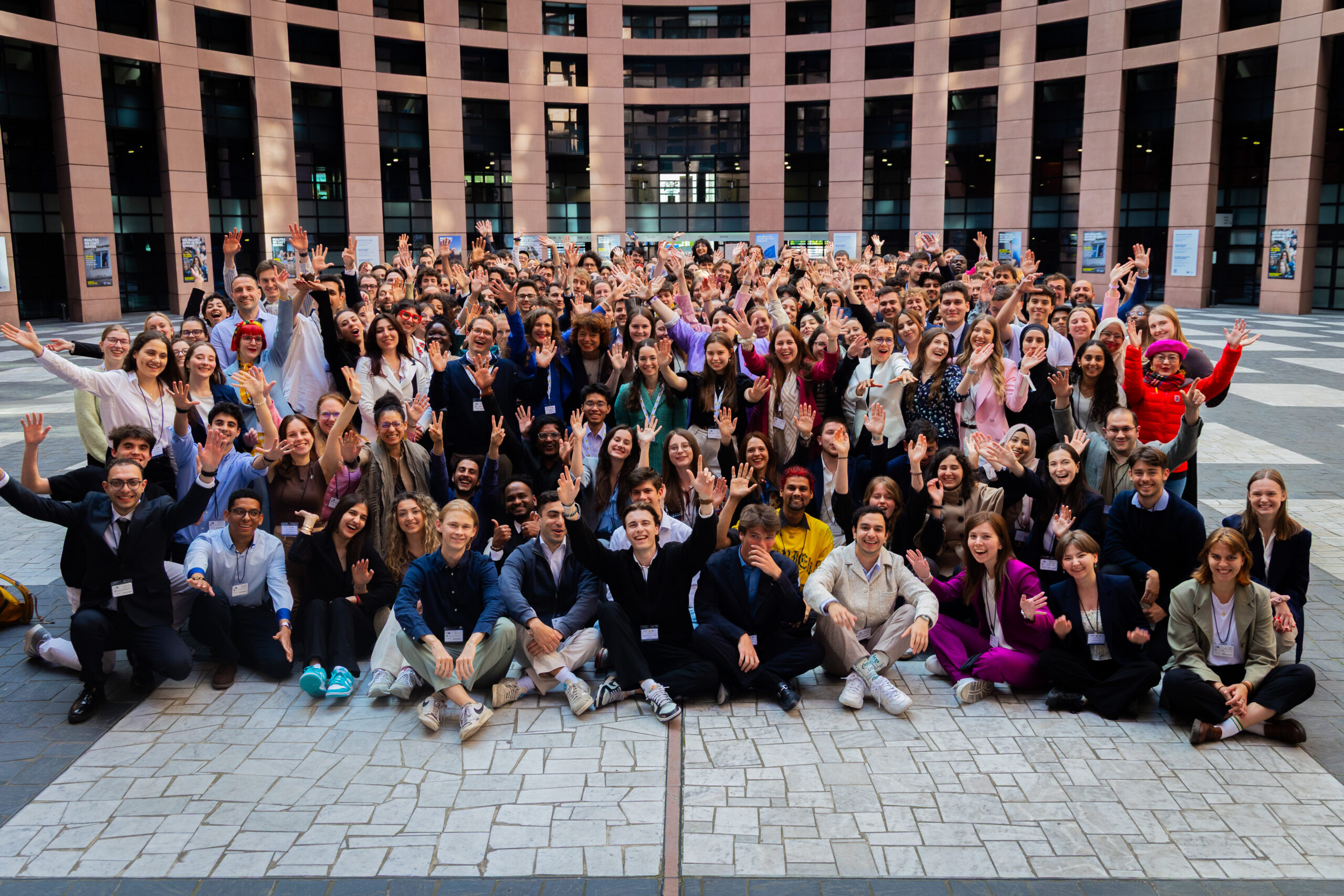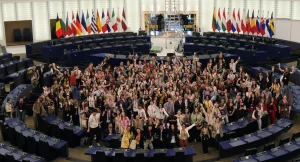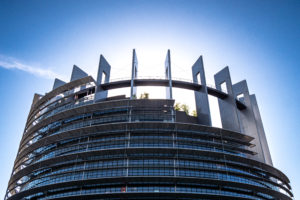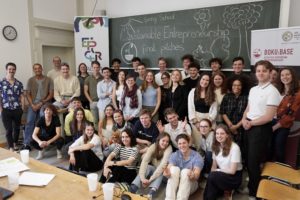Main photo source: FusingPhoenix
What is the European Student Assembly?
ESA is an initiative of the EUC Voices project. The fourth edition took place from 26 to 28 May in Strasbourg, bringing together 230 students from 190 universities. Participants debated and drafted policy recommendations on eight different panel topics. Panel work began in February this year, consisting of online meetings where ideas for potential policy recommendations were discussed and developed. The final stage of this process is a three-day event at the European Parliament in Strasbourg, where participants can debate the policy recommendations developed during these meetings and vote on which ones will be included in the ESA policy recommendations handbook. Following the in-person event, the dissemination phase begins. This aims to share the ESA results with interested parties and decision-makers, ensuring that young people’s voices are truly heard.
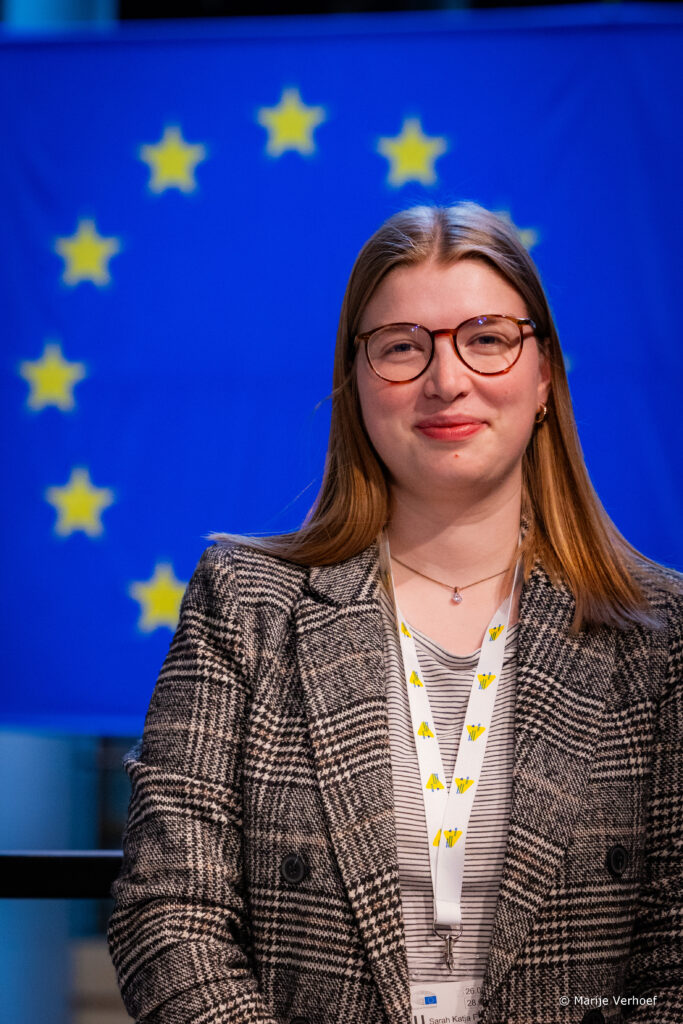
Sarah Katja Fuhrich is in her second semester of a master’s degree in biology, specialising in Immunology, at the University of Freiburg. Having participated in the 3rd edition of ESA last year, she was part of Working Package 2 (WP2) and helped organise this year´s 4th edition of ESA. As well as taking part in all plenary sessions, she also had the opportunity to attend an alumni event.
Photo source: Marije Verhoef
ESA 2025 featured eight thematic panels covering a range of topics from mental health resilience to cultural inclusivity. Which panel did you join, and what drew you to that particular topic?
For this year´s ESA, I was part of Work Package 2 of the EU Voices project, which focuses on the organising the ESA event. As such, WP2 was respoinsible for discussing and preparing the eight panel topics for this year’s ESA edition, as well as contributing to the selection process for ESA panel coordinators and organising the in-person event in Strasbourg and the online activities that form part of ESA. I was also an Advisor Alumni for Panel 2, ‘Greener Tomorrow’, which focused on how higher education can contribute to climate and environmental policy goals. In this role, we supported the work of the panel coordinators by answering questions, resolving issues and joining online meetings to check on the panels’ progress. During the event in Strasbourg, we were responsible for all organisational issues and providing support relating to our panels and their contributions to the final vote. We also supported and led some of the event’s plenary sessions.
As a biology student, I chose to be an Advisor Alumni for Panel 2 because I was curious about its contributions to the topic. The results were fascinating, covering a wide range of topics including young entrepreneurs and SMEs.
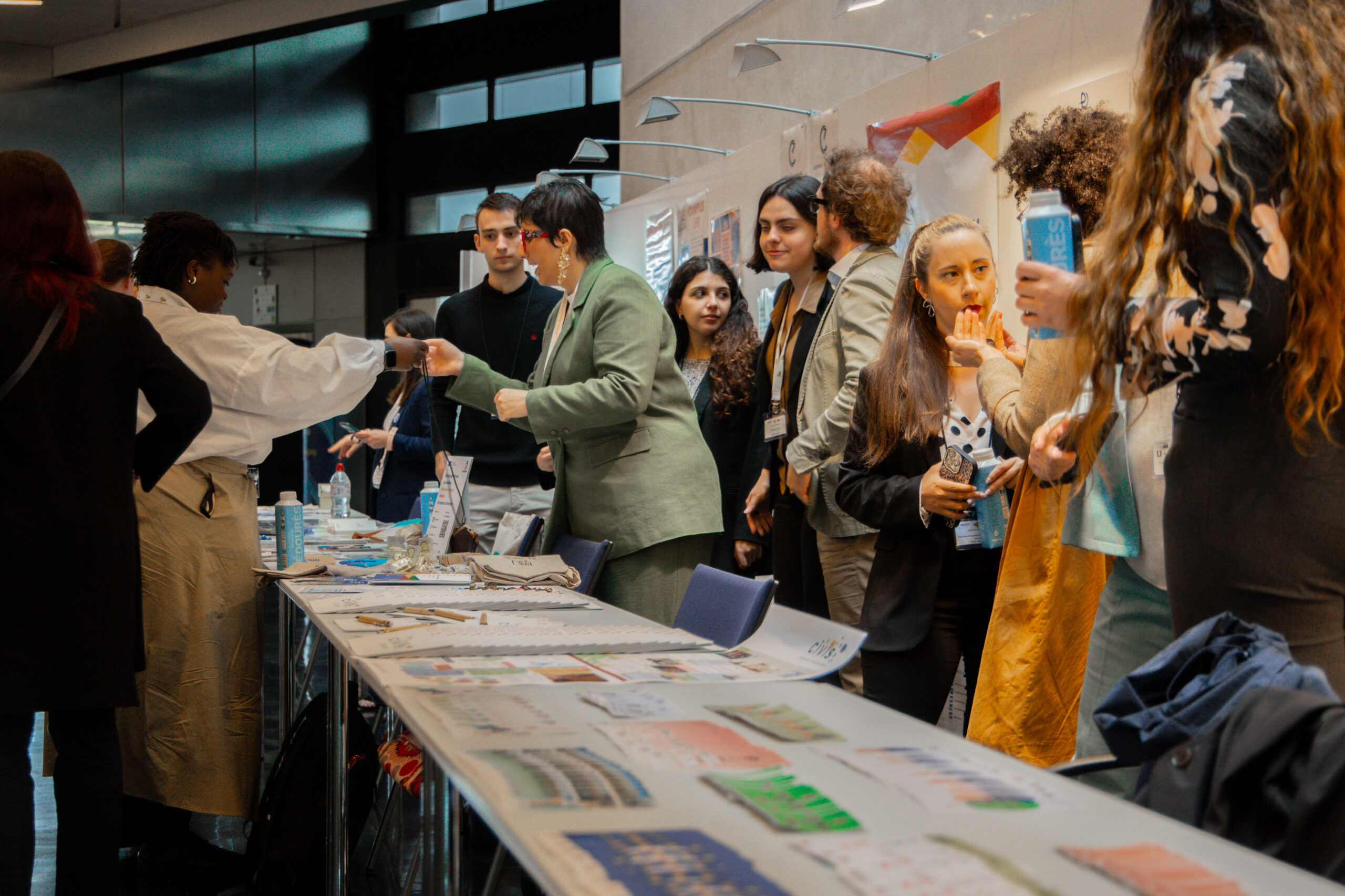
How do you plan to apply what you learnt at ESA to the EPICUR network and student life in Freiburg?
While working in university ‘politics’ and working for ESA are quite different, the two are connected by a willingness to contribute to large-scale projects or organisations. During my bachelor’s degree at the University of Rostock, I was part of the Biology Student Council for three years, and I intend to join the Biology Student Council at the University of Freiburg. Being part of the ESA network is also a great way to stay informed about current initiatives within and outside the European university network.
If you could give future applicants one piece of advice about ESA 2026, what would it be?
I would encourage anyone interested in ESA to apply. It’s a unique, hands-on way to get involved in pan-European politics and meet like-minded young people who are passionate about finding solutions to the pressing issues facing the European Union and the world.
Bear in mind that the amount of time ESA takes up depends on how many meetings you attend and how much extra work you do, such as researching and writing recommendations. However, you can decide how involved you want to be. While you don’t have to attend every meeting, I found that the most interesting and effective approach was to participate as much as possible. Only around 10% of applicants are accepted onto the ESA, so it’s important to make the most of the experience and get involved in your panel’s work. It is a truly enriching experience and a great way to connect with people from different backgrounds and perspectives.
Working on ESA projects last year made me realise how much I enjoy policy work. This has led me to undertake a Blue Book traineeship at the European Commission in Brussels, where I am currently working on policies relating to alternatives to animal testing for chemical safety. Therefore, ESA can open doors to other great opportunities.
There are also many ways to stay involved with ESA after the event, such as joining a work package to help ensure the success of future editions or staying connected through the ESA Alumni network.
